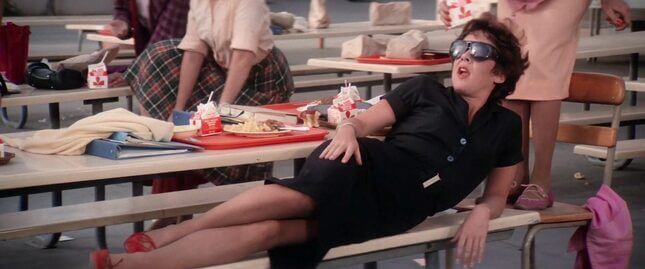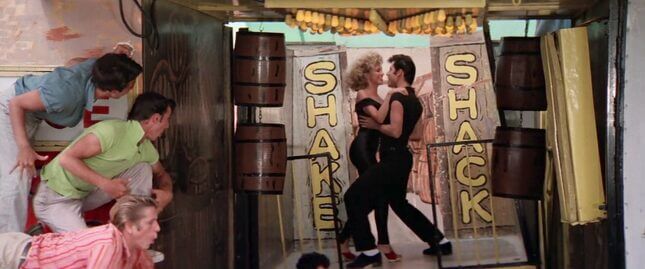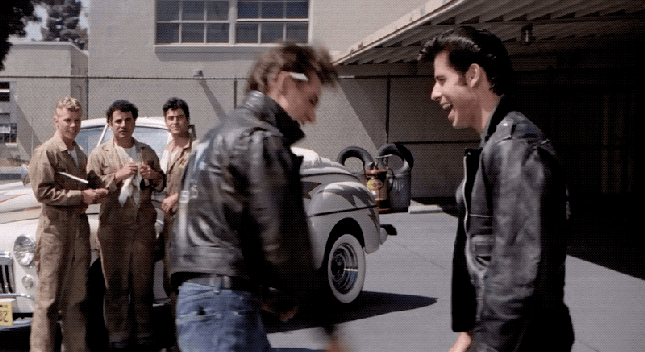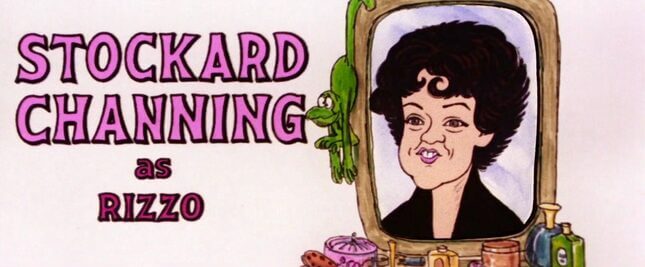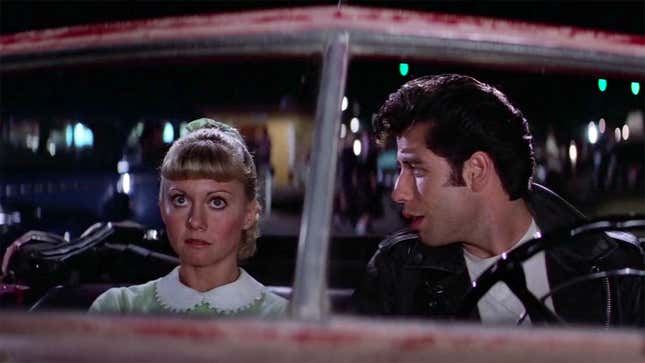

Seeing as Memorial Day marked the unofficial start of a summer that could very well prove to be one spent entirely out of movie theaters, I’m going to focus this recurring feature on summer blockbusters (and maybe the odd sleeper or would-be blockbuster that flopped, here and there) until fall. After all, reliving theatrical experience via home media (and the cognitive dissonance it conjures) is a big part of what Has It Aged Well? is about.
In the summer of 1978, America stayed in school via Grease, Randal Kleiser’s phenomenon of a movie musical about high school students, based on Jim Jacobs and Warren Casey’s 1971 stage musical. Grease was an eventual hit on Broadway, yet it inspired little faith after being greenlit. In an excellent retrospective piece published by Vanity Fair in 2016, Michael Callahan sets up the stakes: “The slapdash production, mapped out in five weeks and shot over two months, was given a modest $6 million budget by Paramount C.E.O. Barry Diller, who dismissed the whole thing as so much cinematic cotton candy.”
How silly. Grease was an immediate sensation that quickly became canon, a defining piece of American culture that spanned generations (its ’50s setting allowed for simultaneous fond remembrance and satire, and its release in the ’70s captured what a force nostalgia had become in pop culture) and churned out hit after hit (four of its songs went top 10 in the U.S., with “Grease” and “You’re the One That I Want” going all the way to No. 1 on the Billboard Hot 100). Grease is so iconic that it’s easy to ignore as cultural wallpaper (Grease is just there in the recesses of my memory because it’s always… just been there), but that makes rediscovering it such a delight.
The musical numbers fill the screen in a tradition back decades before the simpler time in which it is set, sometimes employing a cast of hundreds. It’s astonishing at times, and more often than not, someone is doing something worth looking at. Look at how each T-bird is doing a different move during “Summer Nights”:
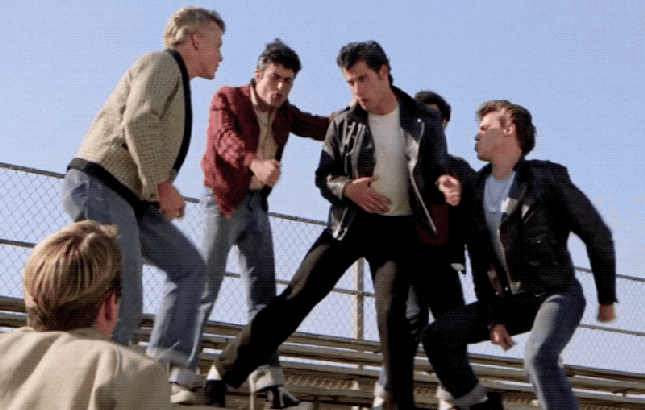
Bronte Woodard’s screenplay is reliably witty. While rewatching this week, I laughed out loud when Rizzo (Stockard Channing) tells Marty in the drive-in bathroom that she feels “like a defective typewriter” and then clarifies: “I missed my period.” The performances are so good that almost every character is distinct, regardless of the number of lines he or she has—even Doody (Barry Pearl) and Sonny (Michael Tuccci) are palpably individual despite looking like fraternal twins who received uneven portions of milk as infants. Channing is particularly effervescent, reading each line “with relish” and as if her career depended on it (it basically did—after making a splash in 1975’s The Fortune, she stalled until Grease came along). And Travolta, I don’t think, was ever better before or after. Grease contains everything you need to know about Travolta’s appeal.
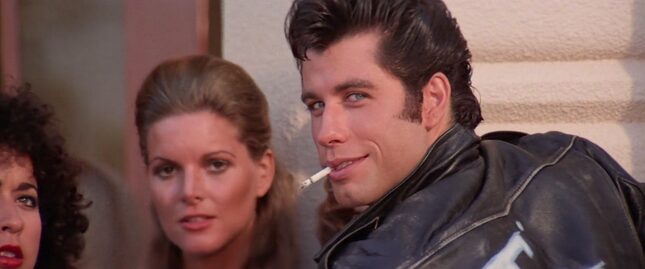
I learned from Kleiser’s commentary that Travolta informed the director that he had a good side—his left—and requested to be shot from it. And there it is. Show me the lie.
All of the characters feel complete with the exception of the film’s de facto protagonist, Sandy (Olivia Newton John), a husk of a human who stumbles around Rydell High so deliriously awestruck that it’s as though she just arrived to America from another planet, not merely Australia (same thing?). In the ’70s, Grease did for the ’50s what that decade could never do for itself: It got at the horny truth. The sexual revolution, the dissolution of the Motion Picture Production Code, the Hollywood Renaissance, porno chic, and other cultural factors yielded storytelling that was franker and more explicit and an industry that by 1978 looked very little like what it did just a few decades before. This modern sensibility pulses through virtually all of Grease’s principal characters except for Sandy, a relic of prudish ’50s sensibilities. It’s really like she’s been transplanted from another decade.
I believe that we are meant to take Sandy at her word. The film’s show-stopping opening number, “Summer Nights,” is a he said/she said recounting of Sandy’s seasonal fling with greaser Danny Zuko, in which her wholesome depiction of summer fun contrasts sharply with his hip-thrusting recap of “making out” under the dock. The song sets the scene of the Sandy/Danny dynamic, and that scene seems to be your typical case of a guy trying to seem cooler and more sexually experienced than he actually is. But Grease trades in subtext that would have been taboo in the ’50s. It’s about what was really going on after the sock hops and outside of the white picket fences. If Sandy and Danny did have some sort of sexual contact (and the opening scene of them frolicking and gazing into each other’s eyes on the beach certainly allows room for a post-coital interpretation), she would have every reason to deny it, given the mores of the day and the expectations of good-girl conduct.
Whether sincere or not, it is the respectability politics that Sandy evinces that irritate Rizzo and render her Sandy’s adversary. Rizzo has no similar contempt for Frenchie (Didi Conn), who is similarly devoid of sexuality, but otherwise genuine in her charming idiosyncrasies. Rizzo’s frequent critiques of Sandy focus on optics. After befriending Sandy early, Frenchie asks Rizzo if she thinks Sandy could join their crew, the Pink Ladies. “She looks too pure to be Pink,” is Rizzo’s response. Not is. Looks. Similarly, Rizzo mocks Sandy’s aura in “Look at Me, I’m Sandra Dee.” What bothers her is not Sandy’s personal choices but her projection of them.
-

-

-

-

-

-

-

-

-

-

-

-

-

-

-

-

-

-

-

-

-

-

-

-

-

-

-

-

-

-

-

-

-

-

-

-

-

-

-

-

